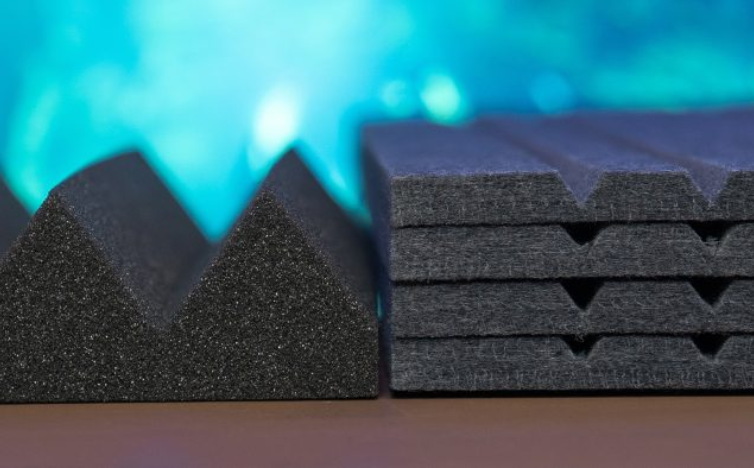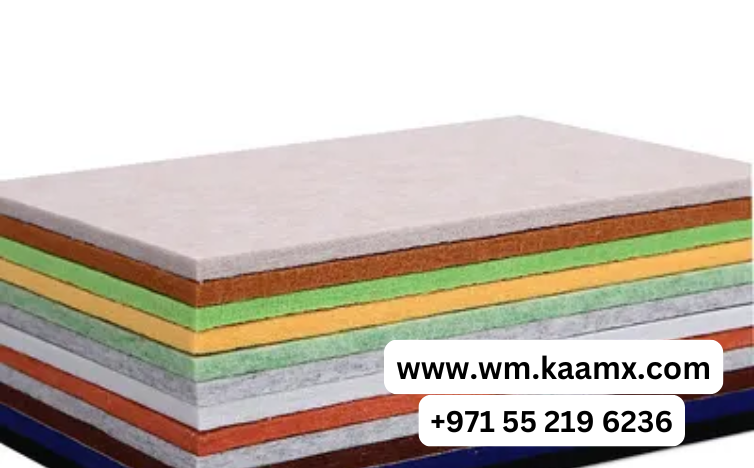Acoustic panels are essential for controlling sound in various spaces, from home theaters to offices and recording studios. One crucial factor in their effectiveness is thickness. The right panel thickness can significantly impact sound absorption and noise reduction. This guide will help you determine the best thickness for your needs.
Why Thickness Matters in Acoustic Panels?
The thickness of an acoustic panel affects its ability to absorb different frequencies of sound. Thicker panels absorb lower frequencies (bass sounds), while thinner panels mainly handle mid-to-high frequencies. Choosing the right thickness ensures better acoustic performance based on the type of noise you want to control.
Common Thickness Options for Acoustic Panels
 1. 1-Inch Acoustic Panels
1. 1-Inch Acoustic Panels
- Best for reducing high-frequency noise such as echoes and speech.
- Suitable for offices, conference rooms, and home settings.
- Less effective for absorbing low-frequency sounds (bass).
2. 2-Inch Acoustic Panels
- Offers a balance between high and mid-frequency absorption.
- Ideal for podcast studios, classrooms, and home theaters.
- Provides moderate bass control but may not eliminate deep sounds completely.
3. 4-Inch Acoustic Panels
- Absorbs a wider range of frequencies, including low bass sounds.
- Recommended for recording studios, music rooms, and home theaters.
- Suitable for environments with significant background noise.
4. 6-Inch and Thicker Panels
- Designed for high-performance sound absorption, especially in professional studios.
- Effective for deep bass and full-spectrum sound control.
- Often used in industrial spaces, large venues, or critical listening environments.
How to Choose the Right Thickness for Your Space?
- For Office and Home Use: 1-inch or 2-inch panels are usually sufficient for reducing echoes and improving speech clarity.
- For Studios and Theaters: 2-inch or 4-inch panels offer better sound control, especially for music and media rooms.
- For Heavy Soundproofing Needs: 4-inch or thicker panels work best for professional and industrial setups.
Contact Muhammad Shaheen Carpentry at 971 55 219 6236, and discover the transformative science of soundproofing for your space.
Final Thoughts
The right thickness of acoustic panels depends on your soundproofing needs. If you’re dealing with light echoes, a thinner panel will work. For better noise control and bass absorption, opt for thicker panels. By selecting the right thickness, you can achieve optimal sound quality and comfort in any space.

